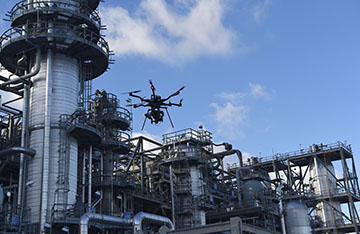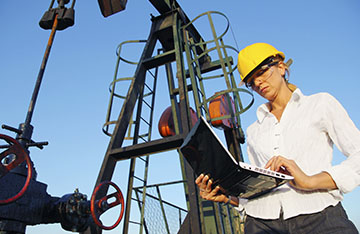Standards News Highlights
API Technical Report 21TR2
API has published API 21TR2, Fatigue Design Guidelines and Test Data for Low Alloy Steel Bolts, 1st edition. This document provides design methods and representative data for fatigue analysis to meet the sustainable development goal of resilient infrastructure and industry operational integrity.
API Technical Report 21TR1, 1st Edition
API’s new technical report aids oil and natural gas companies in selecting the right materials for bolting, a key to safe and reliable operations.
API Supports Safety With New Specification For Oilfield Hammer Unions
The American Petroleum Institute (API) published a new specification for manufacturing oilfield hammer unions, helping to expand future interoperability of the widely used field equipment and enhance safety for natural gas and oil industry workers.
API’s Specification 7HU2, 1st Edition
API has published API Specification (Spec) 7HU2, Oilfield Hammer Unions, 1st edition. The new standard helps to expand future interoperability of the widely used field equipment and enhance safety for natural gas and oil industry workers and address the incompatibility of hammer union components, a common issue in the industry that has led to mismatching field incidents.
API Bulletin 16H, 1st Edition
API has published API Bulletin 16H, Automated Safety Instrumented Systems for Onshore Blowout Preventer Actuation, 1st edition. This first-edition document provides recommendations for the equipment, interfaces and management of the automated safety systems and alarms for blowout preventers.
API Publishes First-Edition Document Enhancing Safety of Onshore Drilling and Production
The American Petroleum Institute (API) published an important first-edition document focused on improving the safety of onshore drilling and production operations. API Bulletin 16H, Automated Safety Instrumented Systems for Onshore Blowout Preventer Actuation, is the first upstream document that provides information on existing and emerging technologies to bring a well to a safe state if other operational barriers fail.
New API Standard Provides Framework for Pipeline Facility Safety Management Program
API has published API Recommended Practice (RP) 1188, Hazardous Liquid Pipeline Facilities Integrity Management, 1st edition. This first edition standard provides a framework for providing a framework for pipeline operators to develop a pipeline facility integrity management program.
API Recommended Practice 1188, 1st Edition
API has published API Recommended Practice (RP) 1188, Hazardous Liquid Pipeline Facilities Integrity Management, 1st edition. This first edition standard provides a framework for providing a framework for pipeline operators to develop a pipeline facility integrity management program.
API Recommended Practice 755, 2nd Edition
RP 755 provides guidance to employees, managers, and supervisors on understanding, recognizing and managing fatigue in the workplace. RP 755 also outlines how owners and operators should establish policies and procedures to address these issues in the workplace.
API Specification 5L, 46th Edition
We are pleased to announce the publication of the 46th edition of Specification 5L, Line Pipe. This new edition provides technical updates that have reached consensus within API’s Subcommittee on Tubular Goods and will now give industry consistent practices in these respective areas of the standard. These updates are reflective of API’s standards program mission to provide a forum for development of consensus-based industry standards, and technical cooperation to improve the industry’s safety performance and competitiveness.





